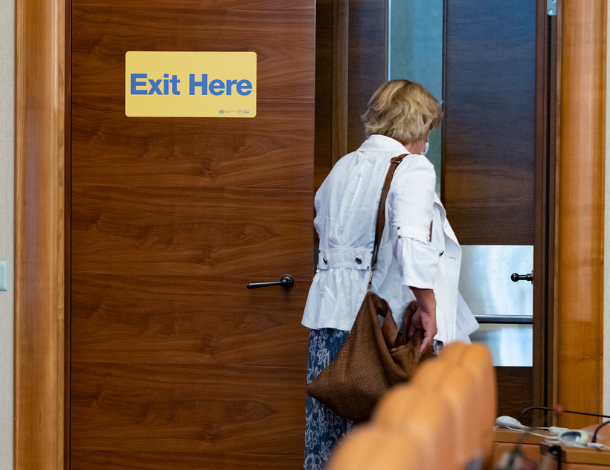We make this statement on behalf of 12 organisations.
Civil society participation is one of the cornerstones of human rights and a human rights-based approach.
Transparency and accountability are fundamental to good governance at all times and at all levels, including at the HRC and in the context of COVID-19 and the UN budget crisis. It is particularly critical at a time when borders are shut, racism and xenophobia are rampant and gender-based violence and social exclusion have drastically increased. Accountability begins at home, it does not end there.

We demand greater transparency and accountability from the Human Rights Council.
isa conditions, the high cost of getting to and staying in Geneva, travel bans and restrictions and reprisals are just a few of the long-standing obstacles exacerbated by the current context for human rights defenders participating in person, particularly those coming from the Global South or belonging to marginalized groups. For those who cannot come to Geneva, remote participation remains a challenge due to internet access and time zones issues (particularly for activists from Asia Pacific and the Americas) and preventable participation barriers including unavailability of webcasts for non-English speakers, lack of system-wide accessibility measures for the diversity of persons with disabilities, an approach mired in bureaucracy, and delays in the programme of work. The HRC and the UN human rights system have missed a great opportunity to make virtual and hybrid meetings an improvement in real access and participation. Modalities this year have tended to exacerbate the flaws of in-person meetings, making virtual meetings less accessible than before, including by transferring responsibilities to participants, for example to provide captioning.
Implementation of recommendations made to increase participation are welcome.
Yet, these cannot be an afterthought. The lack of direct communication channels and consultation of civil society regarding the UN budget crisis and its consequences is indicative of the low priority afforded to civil society participation in that context.
We call on States to:
-
Ensure OHCHR has the resources required to fulfill its mandate, including ensuring robust civil society participation and providing closed-captioning, sign language interpretation, the possibility for written input during virtual and hybrid meetings via text chat, and other system-wide accessibility measures.
We call on the Secretariat to:
-
Regularly update civil society on the UN budget crisis and consult us to mitigate its impact on participation.
-
Webcast plenary meetings in all UN languages, live-stream informal negotiations and make recordings available after informals for those in different time zones.
The Human Rights Council can be most effective only with meaningful civil society participation and only if our concerns are addressed transparently.
Nothing about us without us!
Signatories
- Association for Women’s Rights in Development
- Autistic Minority International
- Cairo Institute for Human Rights Studies (CIHRS)
- Center for Reproductive Rights
- CHOICE for Youth and Sexuality
- Commonwealth Human Rights Initiative (CHRI)
- International Service for Human Rights
- Latin American and the Caribbean Women's Health Network
- MenEngage Alliance
- Rutgers
- Sexual and Reproductive Justice Coalition
- Sexual Rights Initiative
